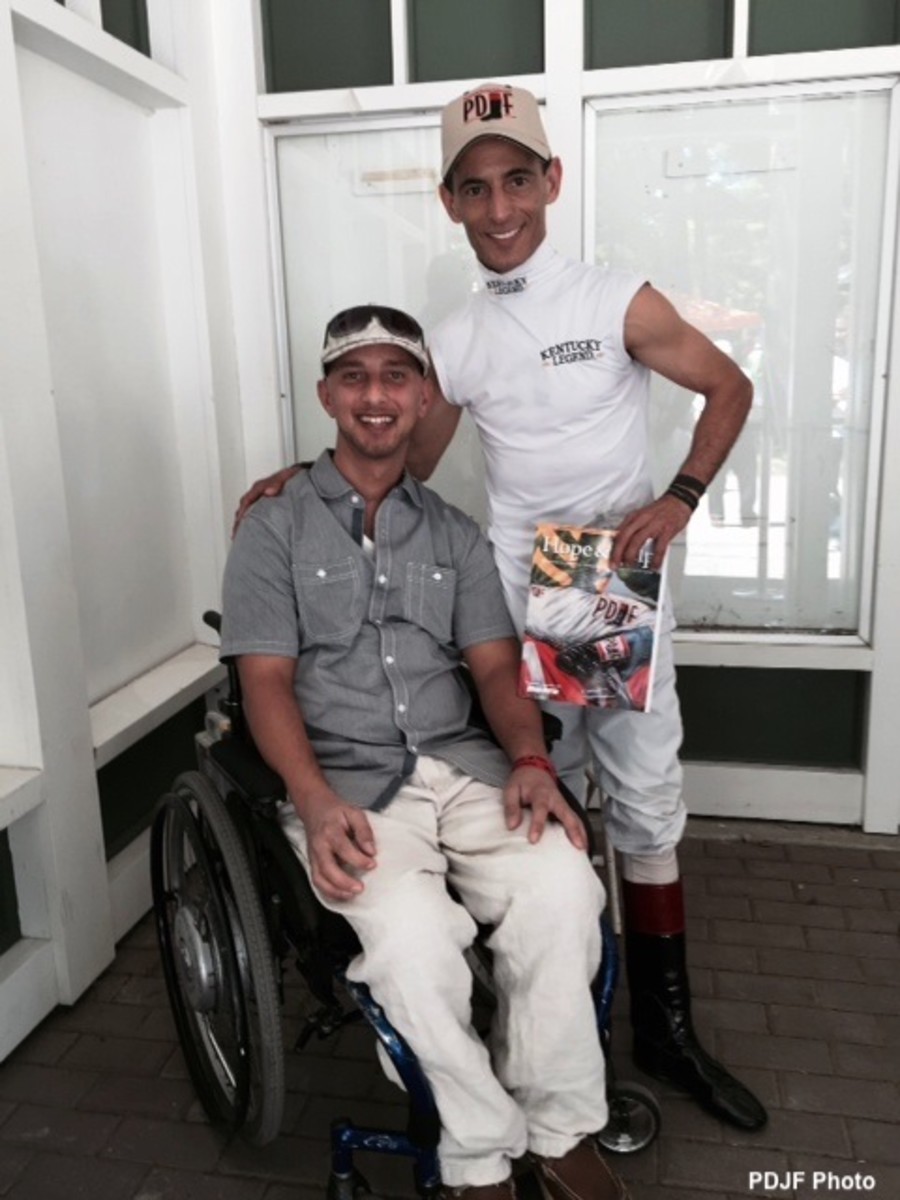Nancy Messineo was one of those Thoroughbred owners who always looked after her horses once they left the racetrack.
And now, thanks to an extraordinary gift made public only after her passing on June 8, countless other horses will be taken care of, too.
Messineo was a residential real estate agent in the Los Angeles area who prided herself in finding homes for young, first-time buyers. She did well financially, said Bruce Sands, her close friend and longtime partner in the horse industry.
In 2015, Messineo was diagnosed with cancer, and the one thing that kept her going through all the challenges that come with the disease were the horses. She loved visiting with them in the mornings, going to Clocker's Corner at Santa Anita, then cheering them on in the afternoons with friends, whether at Santa Anita or Del Mar. But she was always concerned that her horses would have a life after racing as well.
She and Sands enjoyed good success with runners like North County Guy, Oscar Dominguez, and Magical Touch, among others.
Oscar Dominguez was an Irish-bred gelding they claimed for $40,000 in February 2019. He went on to win nearly $300,000 for Messineo and Sands. The son of Zoffany's victory in the Grade 2 Hollywood Turf Cup later that year was one of Messineo's biggest thrills.
“That was the best,” Sands recalled. “United and some other good ones were in there. Oscar was 11-1, and he just ran his race (rallying from last in the field of 10). Nancy had a blast.”
While those visits to the winner's circle and the stables provided the best medicine for Messineo, she realized the seriousness of the disease she was fighting. Not having any close relatives or heirs, she created a trust with the bulk of her estate benefiting a number of equine charities and an animal welfare organization.

Sands described the trust as “seven figures” and said the California Retirement Management Account would receive the largest percentage. Better known as CARMA, the 501(c)(3) charitable organization was the brainchild of owner-breeder Madeline Auerbach and since 2008 has granted over $5.4 million to organizations that retire, retrain and re-home California-raced Thoroughbreds.
Other equine charities that will benefit from the Messineo trust are the Wild Horse Sanctuary in Shingletown, Calif.; Red Bucket Rescue in Chino Hills, Calif., and Thoroughbred Charities of America, based in Lexington, Ky. She also included the Society for the Prevention of Cruelty to Animals among the recipients.
Sands said distribution of funds from the trust should occur within 120 days of Messineo's passing and that there are no strings attached as to how the receiving charities may put the money to use.
Lucinda Lovitt, executive director for CARMA, said she had gotten no forewarning from Messineo about the gift, which is likely the largest the organization has ever received.
“It's amazing,” Lovitt said, “and we were very surprised to find out about it. If there are no specific requirements, we want to create something that would honor Nancy's passion and commitment. She was such a fan, and we want to do something to honor that.”

As for some of Messineo's former runners, Oscar Dominguez is now a trail horse for San Luis Rey equine veterinarian Dr. Lindsey Porubovich, according to Bloodhorse.com. North County Guy and Magical Touch are well cared for as well, Sands said, with one of Magical Touch's foals, Grey Magic, joining her dam after Messineo's death last month.
“Grey Magic ran in April at Santa Anita, and that was the last time Nancy was able to go to the track,” said Sands. “She wanted to have her retired, so the filly is now reunited with Magical Touch.”
Nancy Messineo was one of those people who always seemed to have a smile on her face (“My father would call it a 'Pepsodent' smile,” Sands said), even when you knew she was struggling with her health. She is a difference maker whose love of horses and extraordinary gift in support of Thoroughbred aftercare and other animal charities will be felt for years to come.
If you would like to make a difference, please consider a donation to one of the charities listed above.
Difference Makers is presented by Richard Pearson's Avion Law, a California-based firm specializing on the aviation industry. Avion Law has a “giving back” program supporting awareness campaigns and donating to charitable organizations in and outside of horse racing.
The post Nancy Messineo’s Gift Will Keep On Giving: Difference Makers Presented By Avion Law appeared first on Horse Racing News | Paulick Report.

